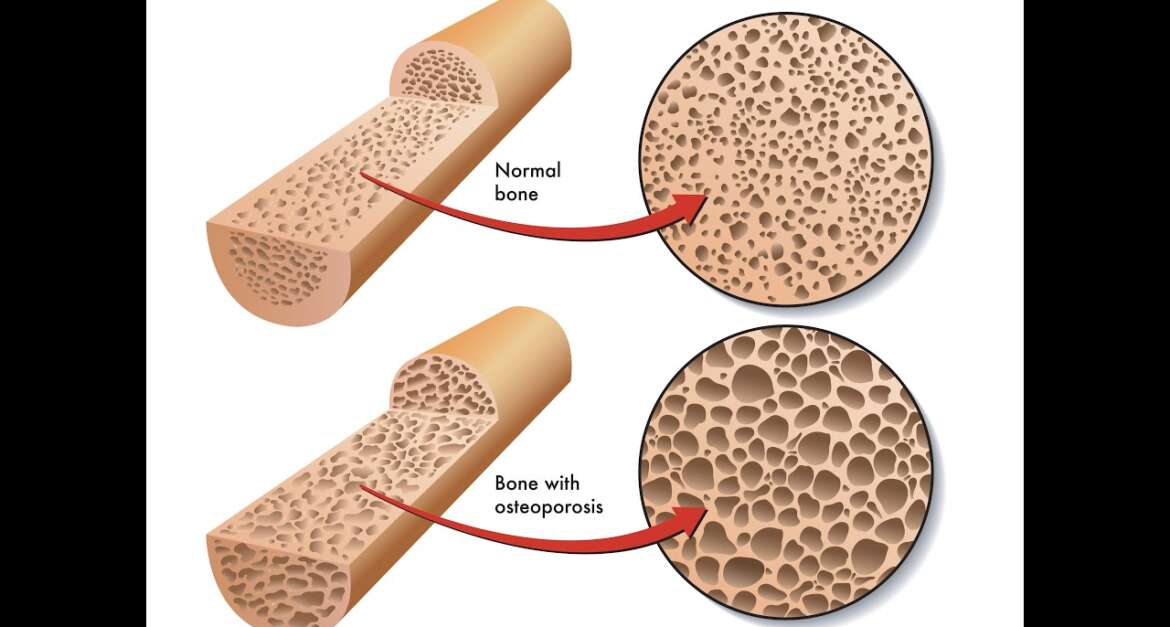According to recent data, osteoporosis causes 50% of women over 50 to break a bone. Numerous people suffer from osteoporosis, which causes decreased bone density and a higher risk of fractures.
The good news is that changing one’s way of life can strengthen bones and stop osteoporosis. In order to reduce your risk of developing this bone ailment, it’s crucial to take preventative measures to safeguard your bones.
Osteoporosis: Can It Be Stopped?
Yes, there are things you can take to stop osteoporosis from getting worse. Additionally, several of our patients inquire if bone density may be rebuilt. It is feasible, particularly if you get started early and adopt a proactive strategy with particular lifestyle aspects.
Additionally, several medical treatments can reduce, keep bone density the same or even increase it. For instance, your orthopaedic specialist can advise taking particular drugs that can aid in regaining bone density.
Osteoporosis: Risk Factors
Some risk variables, like gender, are unavoidable. In order to work proactively with a bone expert to prevent fractures and breaks, it is crucial to understand the risk factors for osteoporosis.
Known risk factors include:
- Medical Issues: Some medical conditions can make you more likely to get osteoporosis. Examples include rheumatoid arthritis, Crohn’s disease, thyroid illness, kidney, liver, and other inflammatory bowel diseases that impact nutrition absorption.
- Medication Use: A adverse effect of taking prescription drugs is that they can lower bone density. One such is the usage of corticosteroids, which are frequently prescribed for autoimmune diseases including rheumatoid arthritis and asthma.
- Hormonal factors: Loss of menstruation due to hormone changes or early menopause (occurring before a woman hits 45) have an impact on bone health.
- Gender: Women are more likely than males to get osteoporosis.
- Family history: If you have a close family who has been diagnosed with osteoporosis, you are more likely to develop the disease yourself.
Dietary Factors for Osteoporosis Prevention
The key to giving your body the fundamental building blocks required to maintain strong bones is to eat a healthy, balanced diet. Orthopedic specialists frequently advise patients to eat a lot of calcium-rich meals because calcium is one of the nutrients that has the greatest impact on bone health.
The average adult need 1,000 mg of calcium every day. For women and men over the age of 50 and 70, the daily recommended dose rises to 1,200 milligrammes.
What Are the Top 5 Foods That Can Fight Osteoporosis?
- Dairy: Pick goods like milk, curd, and cheese that are low in fat or fat-free. Additionally, stay away from dairy products that have a lot of chemicals, such sugar.
- Leafy Greens: Increasing your calcium intake by eating a salad every day is a terrific idea. Get your fill of leafy greens like spinach, kale, collards, Swiss chard, and beet greens. In addition to calcium, these vegetables also contain elements that help bone health, such as vitamins C, E, K, and B.
- Cruciferous Veggies: Consume cruciferous vegetables to fortify your bones. Cauliflower, broccoli, cabbage, brussels sprouts, and bok choy are some examples.
- Eggs: Consuming one yolk provides you with 5% of the daily recommended dose for vitamin D. Other nutrients that strengthen bones, such as zinc, magnesium, and calcium, are also abundant in eggs.
The best sources of calcium are dairy products, but if you prefer a plant-based diet, there are other options. Additionally, you can find meals that have been fortified, such orange juice that has been calcium-fortified.
Increase Vitamin D Levels for Bone Health
Did you know that your body requires vitamin D to properly absorb calcium? Many milk brands are vitamin D-fortified because of this combination.
Spending 15 to 20 minutes every day outside is the greatest way to receive vitamin D. The kidneys and liver can produce the vitamin D you require when sunshine touches your skin.
Because most individuals spend the day indoors and because of seasonal variations, they cannot obtain enough vitamin D from sunlight. Taking supplements is still an alternative. It’s best to talk to your doctor about amounts and frequency if you decide to use vitamin D supplements.
Performing Weight-Bearing Exercises Can Prevent Osteoporosis.
Exercise is a crucial part of a healthy lifestyle that influences bone density in addition to being good for fitness and overall health. For instance, when you move your body, the cells that form your bones are stimulated.
The ideal exercises for preserving bone health focus on resistance or weight-bearing. Use opposing stresses, such as your body weight, elastic bands, or fitness weights, to develop the muscles and bones.
Exercise is essential to build muscles and enhance balance in addition to strengthening the bones. Because falling is less likely when your body is strong, harm is minimised.
Healthy Lifestyle Practices for Strong Bones
Your bones’ health can be impacted by other lifestyle variables. These decisions are significant at every stage of life. It is easier to maintain strong bone density into later years of life when you are diligent about developing healthy behaviours while you are younger.
Following are some lifestyle suggestions for preventing osteoporosis:
- Limit alcohol
- Don’t smoke
- Maintain a healthy weight
- Hormone management
- Avoid soda consumption
Any further lifestyle elements that might be affecting your bone density can be found and identified with the aid of your orthopaedic physician.
Treatment Options for Osteoporosis:
It is time to discuss treatment options with an orthopaedic specialist if you have already received a diagnosis of osteoporosis. Supplementing your improved diet, exercise regimen, and lifestyle modifications with treatments.
Typical osteoporosis treatments consist of:
- Medication: These medicines may be administered intravenously (IV) or as weekly or monthly pills. The type of osteoporosis medication that is most frequently used is called bisphosphonates.
- Hormone therapy: Although it can be used for younger women as well, it is more frequently thought of as a treatment for menopausal women.
- Injury Treatment: Bone fractures caused by osteoporosis are more likely to develop and necessitate immediate medical attention. Your orthopaedic surgeon can offer prompt assistance so that these wounds heal properly.

